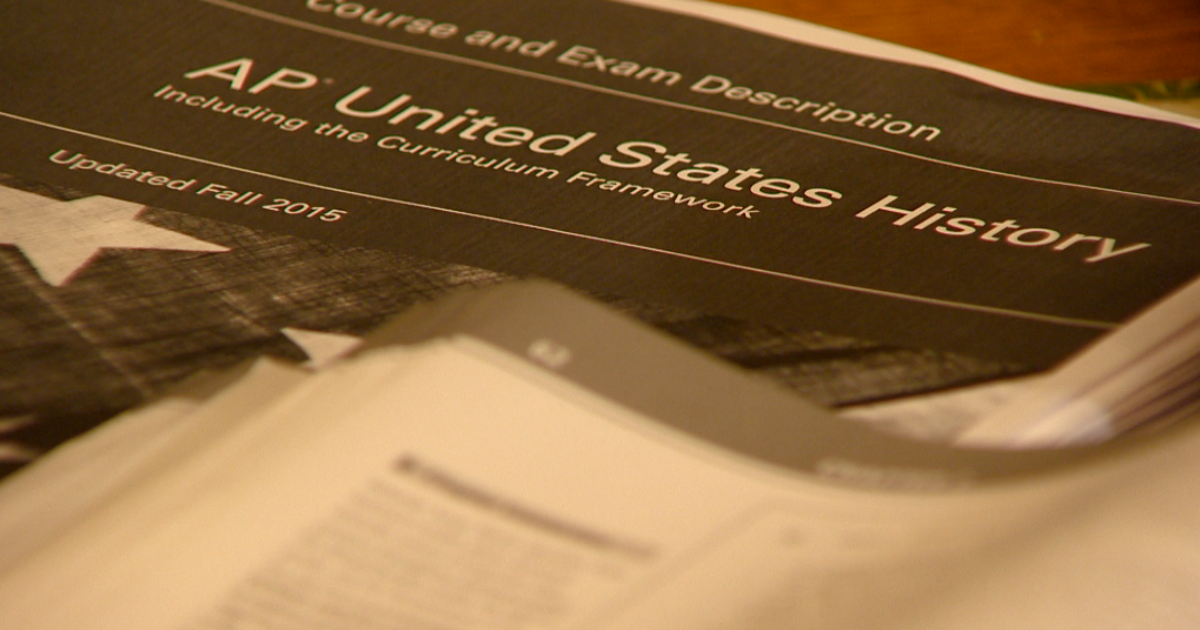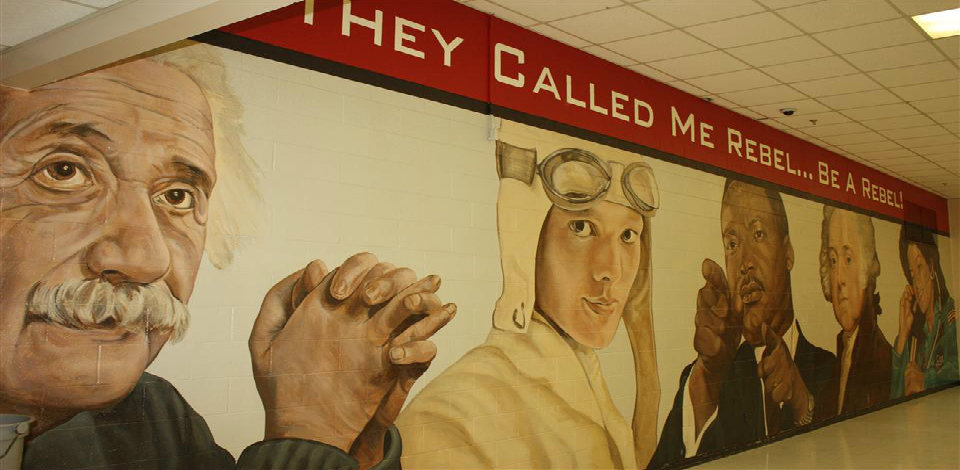 |
Student presenting a Google Map from his
iPad using AirServer |
This year, Bishop Kenny High School embarked on a bold 1:1 iPad initiative with 1,200 mobile devices now in the hands of teachers and students. This initiative aimed to fundamentally transform teaching and learning at Bishop Kenny by providing the means for developing a digital skill set where both teachers and students could easily "create, curate and collaborate" in the learning environment. Of course, launching devices on such a large scale did present some challenges with bandwidth, resources and student use of the device. However, from my perspective as a teacher, this inaugural year has been an overwhelming success. Sure, the iPad can be a device of distraction, but the potential of having a device readily available for each student far outweighs the temporary distractions. It also affords students an opportunity to learn not only a digital skill set, but also some self-control and discipline. Devices are becoming much more prevalent in our society and in the workplace - everyone, young people and adults, must develop the digital etiquette of knowing when to power up and when to power down.
Looking back at this school year, I've noticed that students are much more engaged in their learning than ever before. I'm not sure all students fully realize how far they have come since August, but as a teacher, it is amazing to see how launching the iPad really has transformed the way we learn at BK. It is gratifying to watch students helping other students and students helping teachers learn new skills and develop new ways of interacting with academic subjects. I would like to share some examples from my own classroom this year and of course, take the opportunity to brag about the incredible 126 juniors that I had the distinct honor and privilege to teach and to learn from this year. Below are a few examples of activities we conducted using the iPad:
Bringing documents to life using DocsTeach from the National Archives:
Reading primary sources is an essential skill for historians and can be a challenge, especially when the documents are handwritten. Prior to the iPad, I had to book a computer lab to examine original documents or just rely on text translations of the documents photocopied for classroom use. This year, we were able to carefully examine original manuscripts and artifacts using the DocsTeach app. Reading original, handwritten documents was challenging for students, but it did help them focus on every word. It is also very neat to inspect the real artifacts!
Getting away from "PowerPoint" and finding new ways to collaborate and present historical information:
 |
| RWT Timeline App |
This year, students collaborated on various topics in history using a variety of apps and tools, rather than just making (boring) PowerPoint slides. When I first began assigning presentations years ago, I would have to book a lab and spend 15-20 minutes explaining to students exactly how to complete the assignment. Now with an interactive device in the hands of every student, they have taught me new ways of curating materials and how to create compelling presentations of history. Linked below are some examples with the names of the apps used:
Playing trivia games with QuizUp:
For years, I gave a "Presidents Quiz" where students created a chart of all the Presidents and then used that chart on a skills quiz. While the grades on this quiz were always okay, this year, my students inspired me to try something different. Students taught me how to play QuizUp and the game has a category for the Presidents. Instead of the traditional paper chart and quiz, students earned a quiz grade by reaching Level 10 in QuizUp.
The assignment is linked here for teachers interested in trying this activity. I loved when students played me in the app and it was really gratifying when a student beat me in a history trivia game! I think he was surprised that I was so excited about losing to a student.
Collaborating to create history movies:
Two years ago, I started an annual project where students would create a video on an event, topic or person in U.S. history. This year's project exceeded my highest expectations. While most groups used Windows Movie Maker on laptops, they also used their iPads to gather music, images and write captions. A couple groups decided to experiment with iMovie for iPad instead of using the laptops. The final products were absolutely remarkable and completed in only four class days! By this point in the year, students were pros at how to quickly create, curate and collaborate using their devices - certainly a skill that will pay dividends in the future.
I encourage you to check out these videos! Every one is amazing and compelling, covering a wide range of diverse topics (and chosen by the students):
Communication and Collaboration via Schoology, Google Drive and E-mail:
One of the advantages of moving to digital learning is that now students have many different ways to communicate with me and with each other. We collaborated on study guides throughout each unit using Google Drive and extended our class discussion online through Schoology. Students were able to stay up-to-date with class assignments, activities and due dates using Schoology. Also, when I left to attend conferences in St. Louis and Orlando this year, I could still keep in touch with the class and answer questions from virtually anywhere!
What's exciting is that this is only the beginning! I can't wait to see what students will teach me next year!
 |
| Using Socrative to review for the AP Exam |













 As a teacher, my ultimate goal is to inspire a passion for learning in all of my students and as a history teacher especially, to give my students an understanding and appreciation of the past and help form them into responsible citizens. While I strive to do this everyday in the classroom, this trip to Washington really gave me the chance to see that passion for learning come to life. Throughout a very packed four day tour, I had the opportunity to witness these six students be genuinely engaged in learning and take an interest in all the sites and exhibits we visited. They listened intently to all of the lessons given by our outstanding tour director, Monica Martucci. They stopped to read exhibits, to take a closer look at historical artifacts, to ask questions and really take in the sites. Of course, they also stopped to take multiple photos and selfies! Who can resist a selfie with George Washington or a perfectly posed shot holding up the White House? Nothing can be more exciting as a teacher than to see your students huddled around a historic document, carefully examining the text and reading all of the surrounding information.
As a teacher, my ultimate goal is to inspire a passion for learning in all of my students and as a history teacher especially, to give my students an understanding and appreciation of the past and help form them into responsible citizens. While I strive to do this everyday in the classroom, this trip to Washington really gave me the chance to see that passion for learning come to life. Throughout a very packed four day tour, I had the opportunity to witness these six students be genuinely engaged in learning and take an interest in all the sites and exhibits we visited. They listened intently to all of the lessons given by our outstanding tour director, Monica Martucci. They stopped to read exhibits, to take a closer look at historical artifacts, to ask questions and really take in the sites. Of course, they also stopped to take multiple photos and selfies! Who can resist a selfie with George Washington or a perfectly posed shot holding up the White House? Nothing can be more exciting as a teacher than to see your students huddled around a historic document, carefully examining the text and reading all of the surrounding information.

